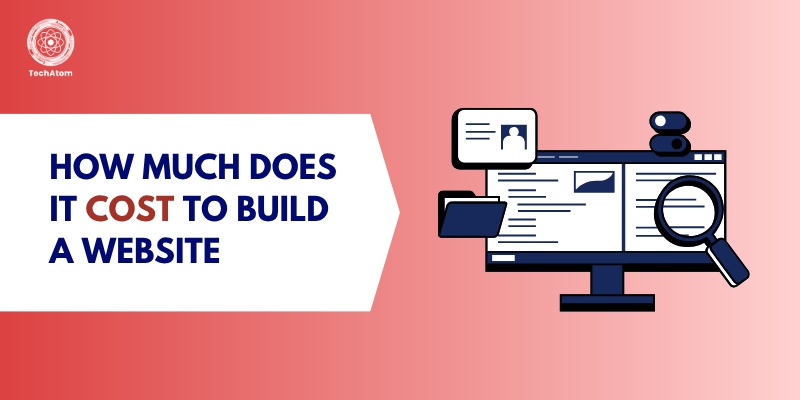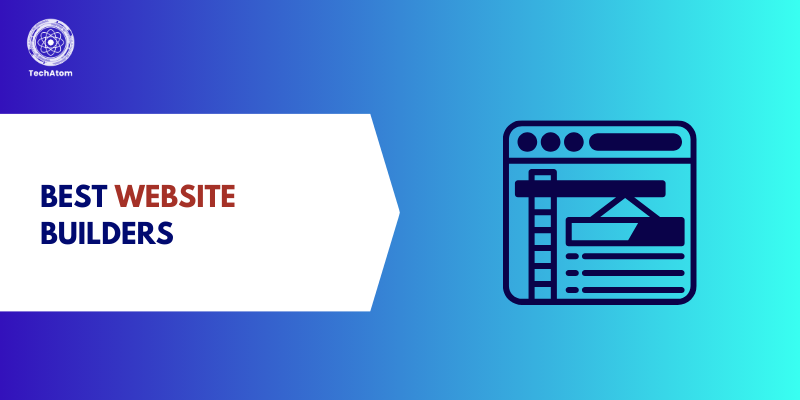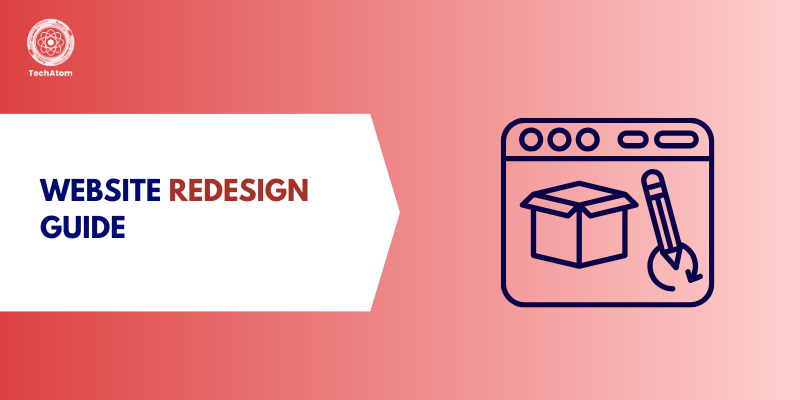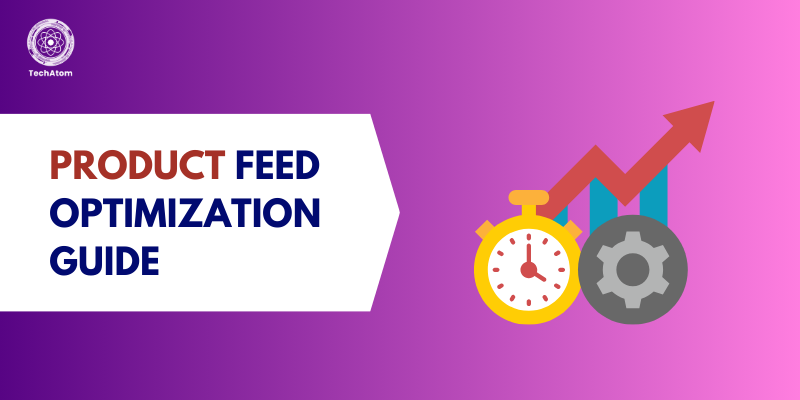The most common question that comes with the thought of building a website: How much does it cost to build a website in 2026?
No universal cost or a single factor determines the cost of website development. Instead, it depends on several factors, like what kind of site you need, the complexity of the site, and who will build the site. For example, the cost for a personal portfolio may be under $1,000, whereas a feature-rich e-commerce store or custom platform can go beyond $50,000.
This article will cover everything you need to know regarding the costs involved in building a website in 2026.
Why Your Website Matters More Than Ever in 2026
You must understand that in 2026, a good website is a must for online presence. If your business doesn’t have a good website, it can be considered as not existing online.
A website is no more an online brochure only. It’s the identity of your brand. It creates the first impression of your brand in the minds of customers. It’s your brand’s digital home and also your 24/7 salesperson. It takes visitors seconds to decide whether to stay or leave your website. This decision will have a lot of impact on your lost sale or a loyal customer.
A well-designed and optimized website is the backbone of business credibility and growth, as today people are discovering brands by relying on:
- Social media
- AI-powered search
A website is not an expense. Instead, it’s a future investment for your brand.
Why Every Business Needs a Good Website
Your website is more than a collection of pages; it’s your brand’s:
- Digital storefront
- Sales representative
- Credebility marker
In 2026, having a professional website is not optional, but is essential.
Before deciding to buy from you, people will look you up for your online presence. If they can’t find you online, you’ll lose a potential customer.
The following reasons will explain why every business needs a good website:
Website Builds Credibility and Trust
Today, trust begins online. Customers trust a professional and reliable website that is:
- Sleek
- Responsive
- Easy to navigate
If your site is outdated or poorly designed, your customers will get the wrong message.
You must work with quality development services to ensure that your site will reflect your brand’s values, tone, and quality. A good website will work as your 24/7 digital representative.
Hub of All Your Marketing Efforts
Your audience will end up on the website, regardless of where they discover you, whether:
- Social media
- Google Ads
- Email marketing
Your website is the coverage of all your digital marketing channels. Even the most expensive campaigns will fail without a solid website. This is the reason today's websites can’t focus only on ads or SEO. They must focus on a conversion-ready website built by a professional website development company.
Your Digital Real Estate
However powerful, you don’t own the platforms like:
- TikTok
But your website is your own digital property that you can control, customize, or scale as you expand your business.
Website development cost may be an expensive investment initially, but it will provide you with long-term control and stability. You don’t have to think about changing rules on the third-party apps, but you have the authority to:
- What content to publish
- How to present your brand
- How to engage your audience
Generates Leads and Sales Around the Clock
Your website remains open, unlike your office or store. It works 24/7 to:
- Attract visitors
- Share information
- Complete sales
You can make your business run more efficiently with the right website development services that help integrate:
- E-commerce functionality
- Booking systems
- Chatbots
- Automation tools
Helps You Compete
Today, even a small business can compete with industry giants with its well-optimized website. A professional website can help you reach customers globally and showcase your:
- Expertise
- Products
- Services
For better performing and higher ranking in search results, you must partner with a website development company that focuses on:
- User experience
- Speed
- SEO
Offers Valuable Insights Into Customer Behavior
Your website can reveal what your audience requires using tools like:
- Google Analytics
- Heatmaps
- AI-driven insights
These tools will also help you understand the following about your audience:
- What pages they visit
- How long do they stay
- What makes them convert
Analysis of this data, powered by your website, can help:
- Refine your marketing strategy
- Optimize your offerings
- Make smarter business decisions
Strengthens Your Brand Identity
Your website is the space where you can showcase your brand’s:
- Vision
- Values
- Voice
Any social media bio or ad can do this the same way as your website. Every element, whether your design style or visuals, tells who you are and why you matter to the visitors. You can strengthen your brand recognition and build customer loyalty with a well-designed site.
What Affects the Cost of Building a Website?
There’s no single price tag for web development. This is because the cost of website development depends on several factors.
Let’s understand the main elements that drive the cost you’ll pay to build a website in 2026.
1. Type of Website
Not all websites are created equally. A simple portfolio website costs way less than an e-commerce or custom-built application. The more your site needs to do, the higher the price tag.
Here’s the breakdown of how different goals impact pricing:
- Personal/portfolio sites: These sites require a lower website building cost, as:
-
-
- Minimal pages
- Simple design
-
- Small business sites: Small business sites require:
-
-
- Brand integration
- SEO setup
- Contact forms
-
- E-commerce sites: Include complex features like:
-
-
- Product management
- Payment gateways
- Shipping integrations
-
- Custom web applications:.Most expensive as they are built from scratch, often with advanced :
- Functionality
- Databases
- User roles
2. Design Complexity
The complexity of design directly impacts the cost. Using a pre-built template for design is far cheaper than a custom design created by a professional website development company.
- Template-based design: A starter framework is:
-
-
- Affordable
- Faster to build
- Great for startups
-
- Custom design: Custom design helps provide:
-
- Tailored visuals
- Unique UI/UX
- Brand-specific layouts
- Higher design & development time
Website design defines how visitors will interact with your brand. A well-crafted website design will pay off in:
- Conversions
- Credibility
3. Number of Pages & Features
More pages require more:
- Time
- Effort
- Testing
A five-page brochure site is simple to build. But a large business site can have an increased website development cost because of:
- Dozens of pages
- Multiple landing sections
- Interactive features
The following extra features will also cost you more:
- Booking systems
- Membership logins
- Chatbots or AI assistants
- Advanced forms or filters
- Payment and shipping integrations
- Multi-language support
4. Platform or CMS
Each platform used for website building has its own pricing and flexibility.
- WordPress or Wix:
-
-
- Ideal for small businesses or blogs
- Lower cost
- Limited customization
-
- Shopify:
-
-
- Excellent for e-commerce
- Monthly fees
- App add-ons
-
- Webflow or Squarespace:
-
-
- Great design flexibility
- Minimal coding
- Moderate cost
-
- Custom frameworks:
- High control & scalability
- Higher development costs
- Longer build time
5. Content Creation
A beautiful website lacking great content won’t go far. There will be additional costs for the services if you hire professionals for:
- Content writing
- Photography
- Video creation
Some website development services offer complete packages, including:
- Copywriting
- SEO optimization
- Visual content
Whereas, some other prices all the services separately. Quality content helps:
- Improve your search rankings
- Builds trust with visitors
6. Developer Location
Rates vary globally. Some examples of locations influencing the cost of a website:
|
Location |
Charge |
|
North America or Western Europe |
$75-$200/hour |
|
Eastern Europe or Asia |
$25-$75/hour |
You can get the best of both worlds by hiring a global website development company. They have distributed teams. These distributed teams help provide high-quality services with cost efficiency.
7. Maintenance
Launching a website is not the end, but the beginning. Once live, a website requires:
- Regular updates
- Plugin Management
- Content refreshes
- Security monitoring
- Backups
Some website development companies offer ongoing maintenance packages. This ensures your website stays:
- Fast
- Secure
- Up-to-date
8. Hosting, Domain, and Security
These are not direct costs. Therefore, these costs are often forgotten while budgeting a website.
- Domain name: $10-$25 per year
- Hosting:
-
-
- Shared hosting starts at $100/year.
- Cloud or managed hosting can go up to $1,000/year.
-
- SSL certificate: Usually $0-$100/year
- Website backups, CDN, & firewalls: These are the additional protection costs, ranging from $20-$100/month.
9. Experience Level of Your Development Team
The experience level of the development team plays a major role in pricing.
- Freelancers generally charge less. But they might lack the resources for complex websites. They are ideal for simple projects.
- Agencies or professional website development companies cost high, but provide much better outcomes as they offer a full team of:
- Designers
- Developers
- SEO experts
- Content strategists
- They are perfect for businesses looking for:
- Scalability
- Performance
- Quality assurance
7. SEO and Marketing Integrations
Today, search engine optimization and marketing tools are essential, not an option.
However beautiful a website is, it will not reach the audience if it’s not optimized for search engines.
Professional website development services often include:
- On-page SEO setup
- Keyword optimization
- Meta descriptions & schema
- Integration with Google Analytics & Search Console
- Marketing automation & CRM
Average Website Development Costs by Type of Website
Let’s have a look at what you can expect to pay in 2026:
|
Type of Website |
Estimated Cost (USD) |
What You Get |
|
Personal/Portfolio Website |
$500-$2,000 |
Simple site to showcase your:
|
|
Small Business Website |
$1,500-$10,000 |
|
|
E-commerce Website |
$5,000-$50,000+ |
|
|
Corporate Website |
$10,000-$75,000 |
|
|
Custom Web Application |
$25,000-$250,000+ |
|
|
Landing Page |
$500-$3,000 |
Single-page, focusing on conversions |
|
Educational/Membership Website |
$8,000-$40,000 |
|
DIY vs. Hiring a Professional
The following is a quick comparison that will help you decide which one suits you according to your needs:
|
Category |
DIY (Wix, Squarespace, etc.) |
Professional |
|
Cost |
$100-$1,000 |
$2,000-$50,000+ |
|
Customization |
Limited templates |
Fully custom design & features |
|
Quality |
Basic |
|
|
SEO & Performance |
Minimal |
Optimized for search & conversions |
|
Time Investment |
High |
Low |
|
Support |
Limited |
Ongoing maintenance & updates |
Tips to Avoid Overspending When Building Your Website
Building a website can easily get expensive. If you’re not careful, a simple project can turn into a major investment. But if you plan smartly, you can get a good-looking, high-performing website without disturbing your budget.
The following are some tips that can save your money and get maximum value when building your website.
Set clear goals before you start
Before reaching out to a website development company, clearly define what you want your site to achieve.
A clear setting of goals helps prevent you from paying extra. Always remember that extra features add to your final invoice.
Get multiple quotes
Don’t go for the first company you talk to. Always get quotes from at least three website development companies or freelancers. But it is also important to understand that the lowest price is not always the best choice. SEO setup, mobile optimization, revisions, or content uploads are also important, along with the cost.
Sometimes a slightly higher cost can help save long-term costs if it comes with:
- Quality assurance
- Proper structure
- Scalable features
Start small, scale later
Many businesses make a common mistake. They try to launch a website that does everything from the first day. That will make you overspend.
You must start with an MVP (Minimum Viable Product). It is a simpler version that will have all the must-have features. Once it’s live and generating traction, you can expand by adding advanced functionalities like:
- Member logins
- Automation
- Multi-language support
This is recommended by most website development service providers. This approach will help keep your upfront costs manageable, giving you the flexibility to evolve.
Use a Solid Template
It is not necessary to have a 100% custom design for many sites.
If your budget is low, you must ask your website development company to use a high-quality starter framework. They can customize this template to match your brand.
Modern templates are highly flexible. They can also look professional and custom-built at a fraction of the cost. Some sites that provide such templates are:
- WordPress
- Webflow
- Shopify
Focus on Function Over Flash
You can easily get carried away with:
- Fancy animations
- Complex effects
- Unnecessary plugins
But these extras can quickly increase your website development cost and slow down performance.
You must keep your:
- Design clean
- Navigation intuitive
- User journey straightforward
You must not only focus on making your website cool but also on what actually drives conversions.
Provide Your Own Content Where Possible
You can save your hundreds or thousands of dollars by writing your own website copy or providing product descriptions.
But if you don’t know about content creation. You have to invest in professional writing and visuals. Hybrid models are also allowed by many website developers, where you can supply the basics, and they can refine and optimize it.
Plan for Ongoing Maintenance Early
Many businesses forget about maintenance costs, and then they get surprised.
Advanced planning of maintenance costs can help avoid unexpected expenses and ensure your site stays:
- Fast
- Secure
- Glitch-free
Avoid Scope Creep
Solid creep is the point where new ideas get added mid-project. This creates a sudden stretch in the timeline and skyrockets your costs.
To prevent this:
- Have a clear project scope.
- Use project management tools to track changes.
- For new features, agree on costs before the development process.
Use Free or Affordable Tools Strategically
Many tools can add value to the site, and not all have high fees. Some are free and affordable. You can build a robust digital ecosystem without expensive subscriptions by using:
- Free analytical tool like Google Analytics
- Affordable email platforms like MailerLite
You can also cut costs using open-source plugins or integrations while maintaining performance and security.
Think Long-Term
Most companies focus only on the upfront costs, but it is not necessary that the cheapest option is always best. It can make your expenses higher in later months. Within months of launch, poorly built websites often need:
- Redesigns
- Bug fixes
- SEO overhauls
For the evaluation of website development services, you must look beyond the price. You can save costly rebuilds as your business grows by choosing a partner who builds, keeping in mind the following:
- Scalability
- SEO
- Performance
Example Scenarios: Realistic 2026 Budgets
|
Scenario |
Website Type |
DIY Cost |
Professional Cost |
|
Freelance Portfolio |
Personal |
$300 |
$1,500 |
|
Startup Website |
Small Business |
$1,00- |
$5,000-$10,000 |
|
Online Boutique |
E-commerce |
$800 |
$7,000-$25,000 |
|
SaaS Platform |
Custom App |
$2,000 |
$25,000-$100,000 |
|
Marketing Agency |
Corporate |
$1,500 |
$10,000-$50,000 |
Conclusion
In 2026, building a website doesn’t only mean creating an online presence for your brand, but also building an online digital foundation that:
- Supports business growth
- Builds trust
- Attracts customers
A website is the first impression, whether you’re a solo entrepreneur, a growing startup, or an established brand. Also, this first impression is very crucial.
There’s no fixed or universal cost for website development. The cost of website development can go from a few hundred dollars to tens of thousands, depending on:
- Goals
- Features
- Design complexity
- Who you choose to partner with
But a good website is not only built, but it will be grown, optimized, and maintained over time. Choosing quality website development services means investing in:
- Scalability
- Security
- SEO
- Long-term performance
Think clearly and plan strategically. Spending more is not required, but spending smart is a must. You can make your website more than a marketing tool and a most valuable asset by:
- Setting a clear budget
- Prioritizing essential features
- Thinking beyond launch
So, a well-built website is an investment that pays dividends every day in:
- Credebility
- Visibility
- Conversions
Work with a trusted website development company that will understand your vision. This will not let you build only a site, but a strong digital future.
Frequently Asked Questions
1. How much does it cost to build a basic website?
A simple website can cost around $500-$3000. It depends on the design, features, functionality, and whether you hire a freelancer or a professional agency.
2. What factors affect website development costs?
The main factors that affect the website development costs include:
- Type of website
- Number of pages
- Design complexity
- Features
- Who builds it
3. Is it cheaper to build a website myself or hire a developer?
DIY websites like Wix or Squarespace are cheaper upfront. But if you hire a website development company, they will ensure:
- Better design
- SEO
- Long-term scalability
4. What are the ongoing costs of maintaining a website?
Maintenance costs usually range from 10-20% of your initial budget per year, covering:
- Software updates
- Security monitoring
- Backups
- Content changes
- Technical support
5. How much does a domain name and hosting cost?
A domain name costs around $10-$30 per year. Hosting can range from $100-$500 per year. This depends on your site’s traffic and performance needs.
6. What’s the difference between a free website builder and a paid one?
Free website builders are great for personal projects, but they have limitations, such as:
- Ads
- Subdomains
- Restricted customization
Paid platforms provide:
- Better control
- Custom branding
- SEO tools
- Scalability
7. How much does it cost to create an e-commerce website?
An e-commerce website typically costs between $5000 $50,000+, depending on the:
- Number of products
- Integrations
- Custom features
8. Are there hidden costs when building a website?
Some of the common hidden costs when building a website are:
- Premium plugins
- Paid themes
- Third-party integrations
- Ongoing maintenance
9. How long does it take to build a website?
It will take 2-4 weeks to build a simple site. Whereas, an e-commerce website or custom web app can take 2-6 months for development.




